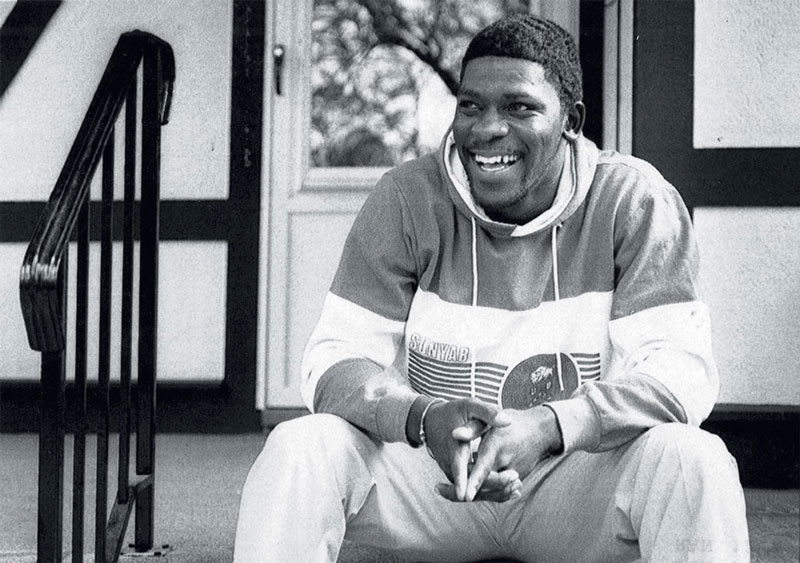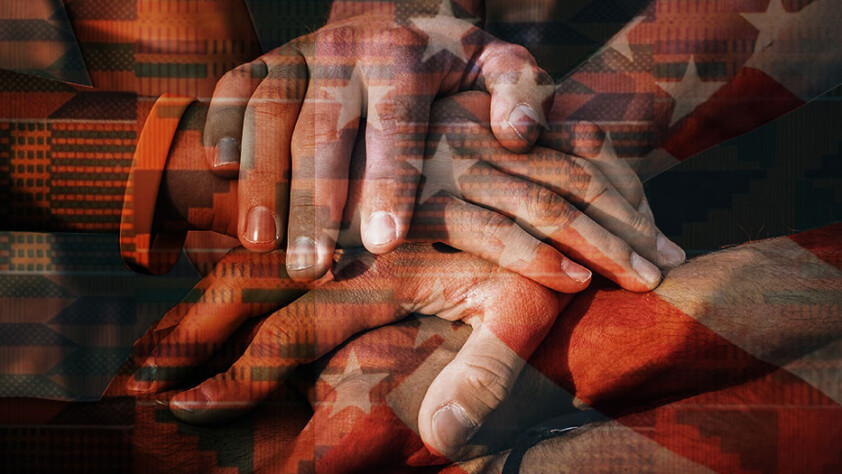DAY-5 BLACK MARTYRDOM: THE FIGHT FOR FREEDOM, SOME HAVE TO DIE SO THAT OTHERS MAY LIVE FREE
When you think of the definition of Myrtrdom; the suffering of death for adherence to a cause and especially to one’s religious faith or defended moral truth, you generally don’t think of the millions of Blacks killed throughout history as a result of racism and the subsequent systematic oppression imposed upon them. Most people think of Joan of Arc or the Disciples or even Jesus Christ Himself. However, when you look this definition square in the eye, You must reconsider the shallow interpretation of defended moral truth.
Sojourner Truth said it best “T’aint I a woman.” This sarcastic declaration of truth was somehow missing from the viewports of those who hid behind the lie of white supremacy. Indeed, she was a woman, a Black woman walking hand in hand with Black men. Sacrificing everything for the defended moral truth dangled before them–Freedom.
“SAY THEIR NAMES”
So SAY THEIR NAMES, those who stood and died for the sake of Freedom. SAY THEIR NAMES; those that stood in opposition to its antitheses–racism. SAY THEIR NAMES; those that died merely because of what they represented, where they lived, or how they lived. Let it never be said or rationalized that they were anything less than human first. And every human being deserves to be treated with dignity and respect. SAY THEIR NAMES; Some bore no name to us but were sorely missed by those who survived the middle passage, SAY THEIR NAMES; countless individuals with given names who defied imminent danger and took matters into their own hands. GO AHEAD, SAY THEIR NAMES; those who did nothing except for being born black in the wrong place at the wrong time. YES, GO AHEAD, SAY THEIR NAMES; You know their names SAY THEM!!!
So I say to you, When someone asks do you know any martyrs, tell them, Hell Yeah, I do. SAY THEIR NAMES; Nat Turner, Crispus Attucks, Medgar Evers, Addie Mae Collins (14), Cynthia Wesley (14), Carole Robertson (14) and Carol Denise McNair (11), Emmitt Till, Martin Luther King Jr, Malcolm X, Trayvon Martin, Philando Castile, Ahmaud Arbery, Breonna Taylor, Elijah McClain, Antwon Rose, George Floyd, and countless others.
See extensive list from the early 1900’s through today
So I say to you, When someone asks do you know any martyrs, tell them, Hell Yeah, I do. SAY THEIR NAMES.
Black LIVES MATTER TO ALL LIVES
“SAY THEIR NAMES”
Sadly enough, there are too many names to list here. Whether or not you can define each one of these individuals as a martyr is not what’s important. What is important is that we not let them die in vain. The abolition of slavery, the end of the Jim Crowe era and desegregation, the birth of the civil rights movement, Breonna’s Law, and other types of police reform have all come about at the high cost of Black lives. Of course, BLACK LIVES MATTER. Why do we need to explain this statement? Personally, I don’t think that there is a person on this earth has not directly benefited from someone willing to die so that others may live.
We have chosen to honor a select few individuals murdered due to oppressive and racist indoctrination. Let us honor their unfortunate deaths by committing to creating a better environment free from hatred and racism. We must not let them die in vain but instead challenge the system that took their lives to be better. #LET THE TRUTH BE TOLD.
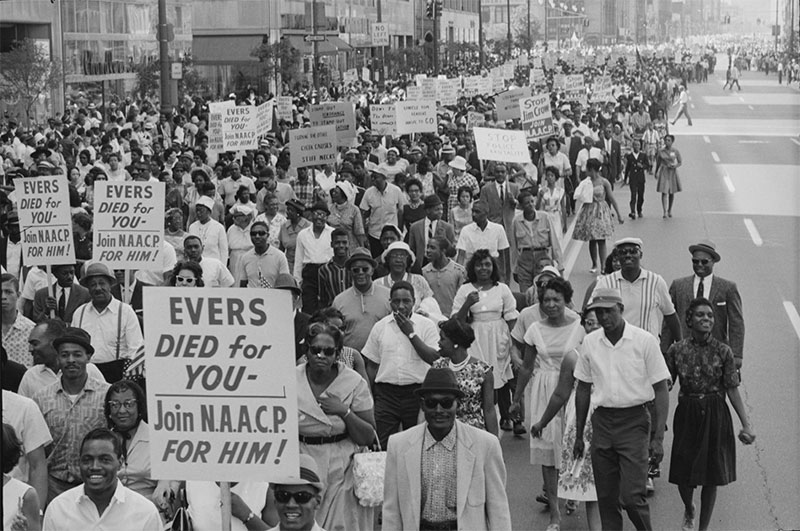
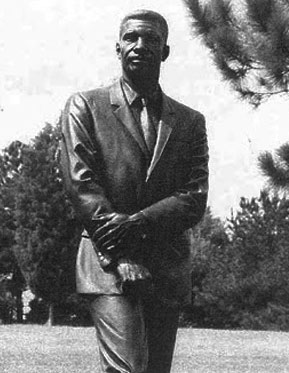
Medger Evers Statue 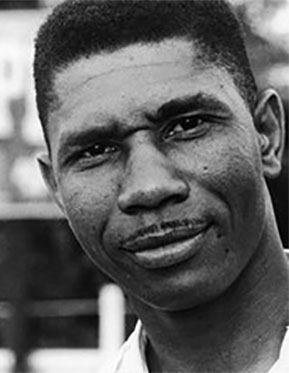
Medger Evers
PITTSBURGH SON SHOT DOWN UNNECESSARILY – SAY HIS NAME
“HARRISBURG — In June 2018, a police officer shot and killed Antwon Rose II, an unarmed black teenager, in East Pittsburgh. Antwon’s death led to emotional protests, the arrest of the officer, and a package of police reform bills introduced by Democrats — legislation that went nowhere in the Republican-controlled state legislature.”
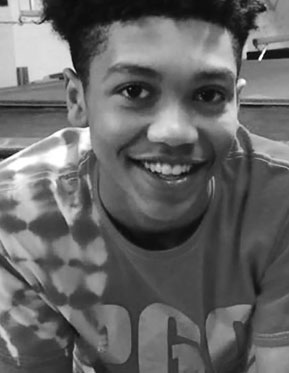
Antwan Rose 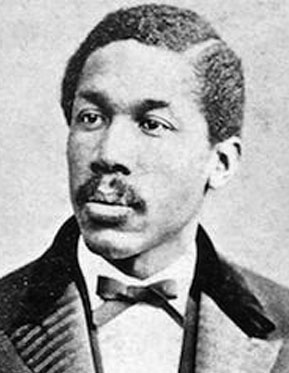
Octavius Valentine Catto
PROMINENT PHILADELPHIA ACTIVIST OCTAVIUS CATTO SHOT AND KILLED TRYING TO VOTE – SAY HIS NAME
Octavius Valentine Catto was a prominent Philadelphia, Pennsylvania, activist, scholar, athlete, and military officer in the National Guard during the Civil War.
Catto was born in Charleston, South Carolina, on February 22, 1839. His mother, Sarah Isabella Cain, a free woman, was a descendant of one of Charleston’s most distinguished mulatto families, the DeReefs. His father, William Catto, was a slave millwright who gained his freedom and became a prominent Presbyterian minister. The elder Catto relocated his family north around 1850 and soon became the pastor at First African Presbyterian Church in Philadelphia, Pennsylvania.
Young Catto was first enrolled at the Robert Vaux Primary School and then Lombard Grammar School. When his family moved to New Jersey for a time, he entered Allentown Academy, located there. Back in Philadelphia by 1854, he became a student at the Institute for Colored Youth (now Cheyney University) and graduated as valedictorian in 1858. Catto furthered his studies in Washington, D.C., and upon his return, became an instructor of literature, mathematics, Greek, and Latin at the Institute for Colored Youth.
When the Confederate Army invaded Pennsylvania in 1863, culminating in the Battle of Gettysburg, Catto responded to the call for emergency troops by raising one of the first volunteer companies, the 5th Brigade of the Pennsylvania National Guard. He served as major and inspector general in the brigade. Catto helped raise eleven regiments of “Colored Troops” in Pennsylvania who were then trained at Camp William Penn before being sent to the warfront.
Even while in uniform, Catto founded the Banneker Literary Institute and the Pennsylvania Equal Rights League in October 1864. He was a member of several other civic, literary, patriotic, and political groups, including the Philadelphia Library Company, 4th Ward Black Political Club, and the Franklin Institute. After the Civil War, Catto started a Philadelphia protest movement that led to passage of the 1867 Pennsylvania law that prohibited racially segregated public transportation. Later the same year, Catto and his childhood friend, Jacob White Jr., formed the city’s second black baseball team: the Philadelphia Pythians of which he was a co-manager and a player.
On Election Day, October 10, 1871, Catto was murdered along with several other blacks in a Philadelphia riot when local African Americans attempted to vote as a result of the state’s ratification of the fifteenth amendment. During the riot, Catto was confronted near his home by Frank Kelly, a Democratic Party operative who fired several shots at Catto, with one bullet piercing his heart. Kelly escaped Philadelphia after the shooting but was found six years later in Chicago, Illinois and extradited to Philadelphia for trial. At trial on April 23, 1877, six prosecution eyewitnesses—three whites and three blacks—identified Kelly as the shooter. Despite their testimony, an all-white jury acquitted Kelly.
Catto never married. He was engaged to Sarah LeCount but was killed before the wedding could take place. His funeral procession down Broad Street to Lebanon Cemetery was viewed by more than five thousand people. Thirty-five years later in 1906, the O.V. Catto Lodge was formed in Philadelphia in his honor.
COMMUNITY GATHER TO REMEMBER JOHNNY GAMMAGE KILLED BY POLICE 25 YEARS AGO
It may have happened 25 years ago, but many in the Pittsburgh community still remember what happened to Jonny Gammage as if it was yesterday.
“That was the first incident of its kind that broke through into the mainly white press,” said Bishop Dorsey McConnell of the Episcopal Diocese of Pittsburgh.
In Oct. 1995, Gammage was pulled over by a Brentwood police officer while driving a Jaguar, owned by his cousin former Steeler Ray Seals. The police officer claimed Gammage was going under the speed limit and called for back up.
Four other officers rushed to the scene where they tried to arrest Gammage and held him down. “Seven minutes later, he was dead at the hands of police,” McConnell said. A medical examiner ultimately ruled that the 31-year old had died of asphyxiation.
Now two decades after the death that sparked national outrage, Gammage still has not received justice. “It’s frightening to think the African American male is still not free,” said Rev. Canon Eric McIntosh of the Episcopal Diocese of Pittsburgh.
On Sunday, All Saint’s Day, local religious leaders including priests from the Episcopal Diocese of Pittsburgh and pastors of several historic Black churches walked to the site where Gammage lost his life and prayed. “It’s a reminder, that this is a still very real occurrence in our community, in our city, in our country, to this day,” McIntosh said.
The names of nearly 40 others who died in what the group calls unjust ways were also acknowledged. The group also prayed for mercy, justice, healing and peace “This effort provided Hope that we will be creating a society in which all of us genuinely have equal opportunities and know and love one another the way we are called to,” McConnell said.
SIGN THE PETITION TO END NO-KNOCK WARRANTS
Content provided courtesy of History.com, Britannica.com and Wikipedia, Tennessean.com Blackpast.com. Sayeveryname.com and Channel 11 News. All Rights Reserved.


